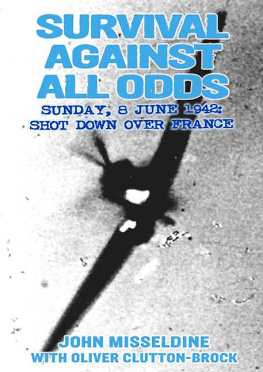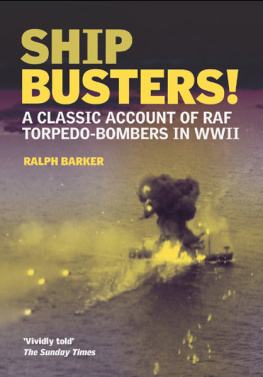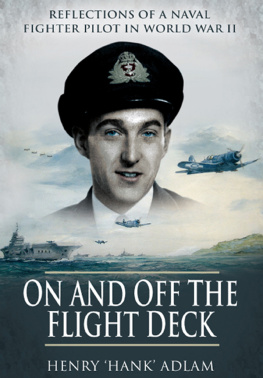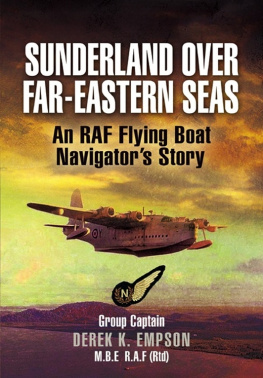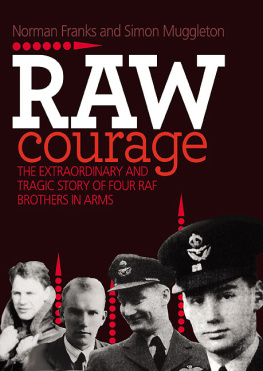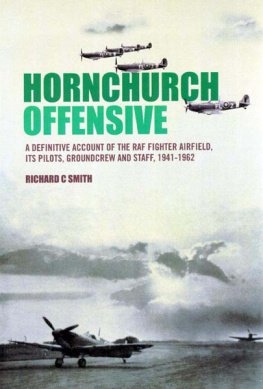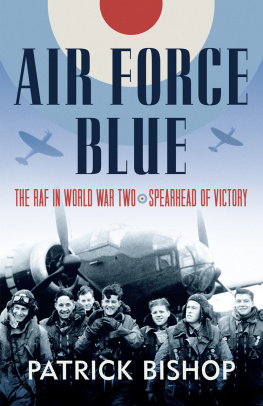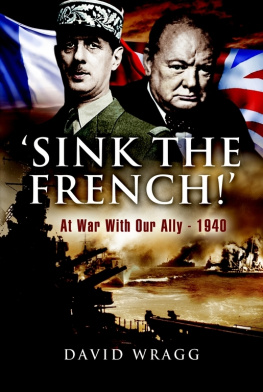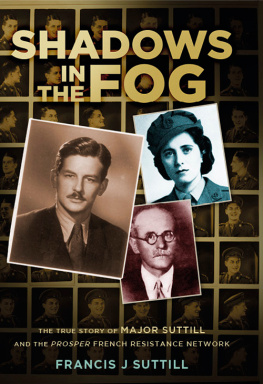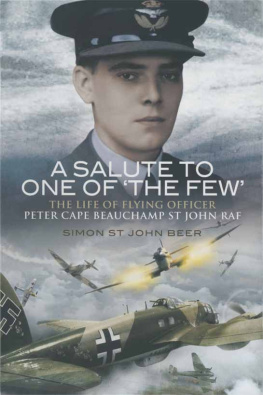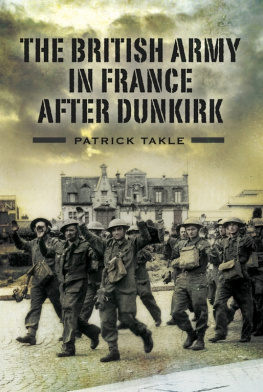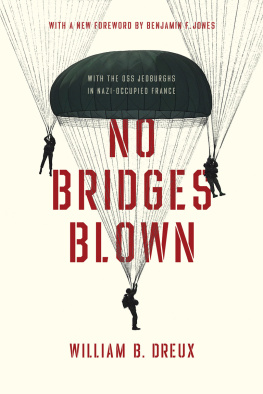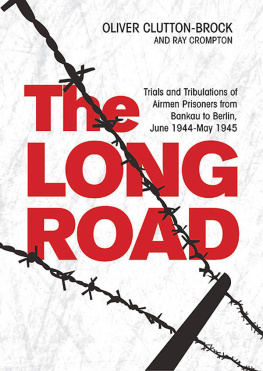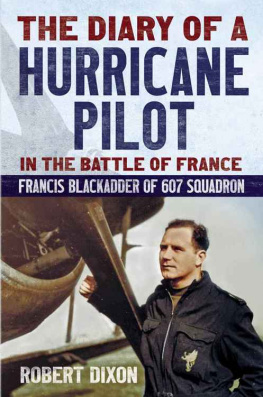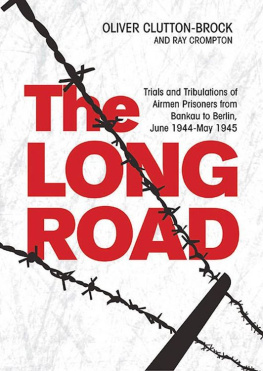PREFACE
O ver the years, I have read many books on the exploits of famous wartime airmen, and have written this book primarily for the benefit of my grandchildren, explaining how an ordinary youngster attained his goal of becoming a pilot and, in particular, flew Spitfires, firstly on 611 and then 65 Squadron,without any success in combat! But also how I escaped Occupied France, under the nose of the enemy, on the run, with the help of men and women who put their lives on the line so that I could return to England and defend our skies.
The story started out to recount highlights of my time in the RAF that I remembered, supplemented by reference to letters that I wrote to my parents during the war that passed into my hands after their deaths. My flying log book acted as a diary, covering most of my time in the RAF; photographs, my lecture notes during training and pilots notes for the Spitfire, as well as other single-engine fighter planes that I flew, also helped. In addition, where it was necessary, over the years I made notes, visited places to confirm certain facts and also made use of some reference books. Later on, when I put pen to paper, it became evident that my early life had a bearing on my years in the RAF and the aftermath.
Older people will remember, and younger people will be aware of, the events that happened during the years of the Second World War, 1939-1945. In particular, the Dunkirk evacuation at the end of May 1940, and the furious combat that took place over England during the summer of that year, especially the aerial battles over London that reached their zenith on 15th September the day when the pilots of Fighter Command had their greatest success over the Luftwaffe.
Few people, however, would have attached any significance to an event that took place two days later, on 17th September 1940. And why should they? The fact that it was my birthday would have had little interest to anyone outside my family and circle of friends. To me, however, it was very important. Having attained the age of eighteen, it was now possible for me to enlist for military service and, hopefully, join the Royal Air Force Volunteer Reserve (RAFVR) to train as a pilot for the duration of the war. This desire was sparked off in 1938 when I paid five shillings (25 pence) for a five-minute flight in the front seat of a two-seater open cockpit air-plane, and made me dream of becoming a pilot. Oddly enough it was another flight in a bi-plane in 1999 that stirred me to complete this story of the ups and downs, good times and difficult times, errors and, in particular, the part that Lady Luck played during this period of my life.
Although I was christened John, my Grandfather Brown always called me Jack. I liked it, and during my RAF career, and later in the Royal Air Force Escaping Society (RAFES), I was known by this Christian name, as well as, during my escapade through France, the French version, Jacques. But at all other times the family use John.
By a happy chance, Diana Morgan of the RAFES introduced me to Oliver Clutton-Brock and, thanks to his experience, guidance and research abilities, he has added considerable depth to this story.
John Misseldine
Grasse,
France.
August 2009.
PROLOGUE
F lying a Spitfire for 611 Squadron over northern France on 8th June 1942, I was covering the tail of my section leader when I saw a large number of German aircraft that were climbing towards us. My leader dived in to attack with me protecting him, looking behind, above and below our aircraft. I was so occupied with this that I was surprised, when looking forward, to find that my leader had abandoned the attack and had climbed away in a hurry, leaving me alone. I was faced with a dilemma: should I try to catch up with him and continue to guard his rear, or look after myself and attempt to attack the enemy? During those few seconds of indecision, the pilot of one of the enemy aircraft must have positioned himself in a blind spot under my tail. He was either a veteran pilot, or a very lucky one, as his burst of fire hit my Spitfire and flames appeared in the cockpit. In addition, my aircraft no longer responded to the controls. As the petrol tanks in a Spitfire are in a vulnerable position immediately in front of the pilot, the danger of the aircraft exploding was very real. There was only one thing to do. GET OUT...
They say that a drowning person sees the events of his lifetime pass through his mind and, as I lay in the wood, after parachuting out, I had a feeling like that. My thoughts turned to my family, my childhood, teenage years, the time I spent training to become a pilot in the RAF and, especially, the time I had spent on 611 Squadron leading up to my present life-threatening situation, shot down in Occupied France.
Chapter 1
SEEKING A CAREER
I was born on 17th September 1922 in a flat in Islington, North London. My first real memory of my life was in March 1926, when my father decided to move from a flat that he rented in Queens Park to a house in Harrow. This had become necessary as my mother was pregnant and expecting her third child in June. Barbara was in fact born on 11th June, a sister for me and for my elder brother, Geoff, who had been born on 26th September 1920.
The house at 40, Manor Road, was one of some sixty that were being built on a site that was an extension of the old Manor Road. The houses were practically identical, having a sitting room (lounge), dining room and a kitchen that had an Ideal boiler to supply hot water, and led to the scullery where there was a gas cooker, a sink and a larder facing down the garden. On the first floor there were two main bedrooms and a third, smaller one. As was normal in those days on construction sites, they built the houses first and then laid the gas mains, electric cables, as well as water and sewage pipes. It was only when this was completed that the road was surfaced and paving stones put down. In consequence during that period, when it rained, like other new residents, I was frequently walking in mud. A temporary narrow-gauge railway line had been built, that ran down the length of the road, on which side-tipping iron trucks loaded with building materials were pushed by the workmen to the houses under construction.

